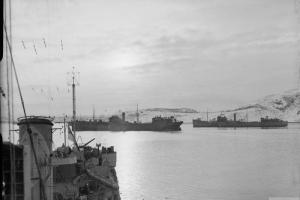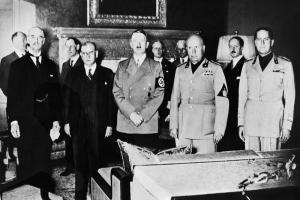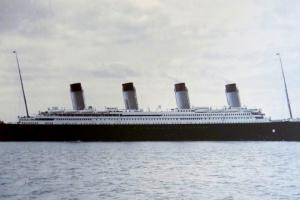Historical Period
In school and college, many had been exposed to books and scholarship that argued that, by August 1945, Japan was ready to surrender, and that America’s real motivation in dropping the A-bomb was to intimidate Russia in the earliest days of the Cold…
Shortly after 4pm on 18 June 1928, the flying boat carrying the great polar explorer Roald Amundsen on his last expedition was seen by a Norwegian fisherman flying over the Arctic ocean into 'a bank of fog that rose up over the horizon…and…
On the Ides of March 44 BCE, one of the most famous men in history was assassinated. Julius Caesar, general and politician of the people, had risen too far. It was rumoured he wanted to be king and his very existence could ruin the Republic.
On Sunday 8 February 1601 a group of armed men, perhaps 300 strong and led by the petulant earl of Essex, marched through London. Their attempted coup failed: London would not rise, the plotters had no leverage, and the court was forewarned. The…
Contrary to the prevailing mythology, not only did the Allies and the Royal Navy win the campaign in the Arctic, but they did so with the help of a huge and previously largely unacknowledged signals intelligence effort, at the heart of which lay the…
Just twenty years after the War to End All Wars, Britain was once again at war with Germany. With hindsight a second conflagration had seemed inevitable, so did Britain sleepwalk into a world war that could have been avoided?
Women's roles in British Intelligence have largely been missing from the wider narratives of the world wars. Their legacy has been hidden for far too long.
'The Fierce' tells the untold true story of a teenager who set out to bring the worst war criminal in America to justice. It is a David versus Goliath tale, set in the Cold War, when fear of communism permeated every facet of American life.
RMS Titanic hit an iceberg off the Grand Banks of Newfoundland at 11:40pm on 14 April 1912. Just two hours and forty minutes after the collision with the iceberg, RMS Titanic broke into two and sank. She crashed onto the ocean floor, almost 2.5…
In the early hours of 24 March 1603 Queen Elizabeth I died quietly in her palace at Richmond. But for those living through those hours of her final decline, it was a time of fear as well as of hope: change was not always to be welcomed and, in not…
Subscribe to Historical Period











